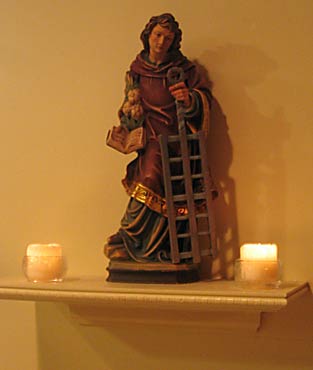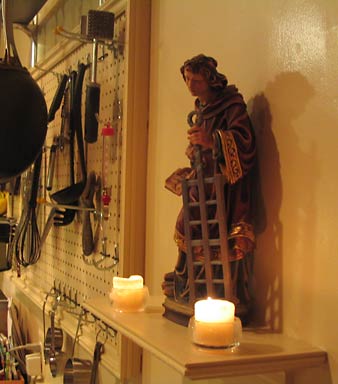In their encyclicals from 1789 until Vatican II, the popes frequently insinuate that the object of the Enlightenment wasn’t to increase human liberty, but to destroy Christian civilization. To modern ears, they can seem grumpy and intemperate (think of Leo XIII’s Syllabus of Errors), filled with passionate denunciations instead of calm refutations. For this reason, they were often dismissed as hopeless reactionaries.
It would be wrong to wholly dismiss the entire project of the Enlightenment — and indeed, the encyclicals do no such thing, identifying positive developments while they condemn errors and half-truths. Men of the Enlightenment improved man’s earthly life by emphasizing natural rights and forcing governments to recognize them. This is particularly true in the Anglo-American strain, much less so in the French, which begot mass bloodletting, vicious and supremely arrogant colonialism, and violent repression of the Church.
Common to all Enlightenment schools of thought was the belief in the right to free speech. At its noblest, this was a recognition that no human institution could long survive without honest criticism, protected from reprisals such as arrest or confiscation of property.
For most of the modern era, this belief has been loudly proclaimed by all of those who claim the Enlightenment as their intellectual lineage, most particularly by those who call themselves “liberals.” These classical liberals had an honorable record of defending the rights of the despised, particularly those who wanted to advance an unpopular view against powerful interests.
But those kinds of liberals were eclipsed in the 1960s by the New Left, which saw classical liberals as the enemy. In the New Left’s view, Western society was irredeemably corrupt, as it bore evil fruits such as colonialism and racism. Liberals, they thought, were much more dangerous to “progress” because they gave a veneer of legitimacy for Western values, most prominently Christianity, and thus they had to be destroyed.
After some initial resistance, the New Left triumphed in a rout. They now lead the left-leaning political parties in every Western nation. In the academy and the arts, they enjoy near-total dominance; whole communions of Protestant churches were given over to them. Thus, most of the people we call “liberals” today aren’t really liberals, they are the New Leftists and their progeny. They continue to belive that Western society must be undermined, but now they wield real power and influence.
Author: Eric Johnson
Ever heard the Italian national anthem?
I don’t think I ever had before tonight, when they played it for some Italian athletes (I don’t remember the event they won.) Listen to it here — it sounds like a chorus from a Rossini opera. Apparently, it was composed by a contemporary of Rossini in 1847. The fifth verse seems a little outdated; I confess that I don’t know a single historical reference in the fourth verse (that is, unless “the heart
and hand of Ferruccio” refers to Ferruccio Lamborghini, the car guy.)
Funniest name in the Winter Games?
My vote is for Wang Manli.
St. Lawrence statue comes home
Last year, I was trying to find a statue of St. Lawrence for our kitchen. One of our readers in Switzerland (maybe our only reader in Switzerland?) found one, and was kind enough to send it back to the States via a priest-friend of his.
After months of logistics, the statue (which was described here) finally made it to the Johnson home. I had intended to put it into a niche, which I built by hand after designing it around St. Lawrence’s dimensions. Unfortunately, there was something blocking the space where I intended to put the statue, so I ended up building a shelf for him. You can see the result here:


Many thanks to our kind reader, and may God bless you in abundance.
Double-congrats to Pete
Two congratulations are in order for Pete Vere:
1. Canada has a new Conservative government. Of course, on the American scale, that’s equivalent to a squishy Republican government, but it’s a vast improvement.
2. Pete has a conversion story in the current issue of This Rock, published by Catholic Answers (but not available online, alas.)
Let us all be happy for him.
